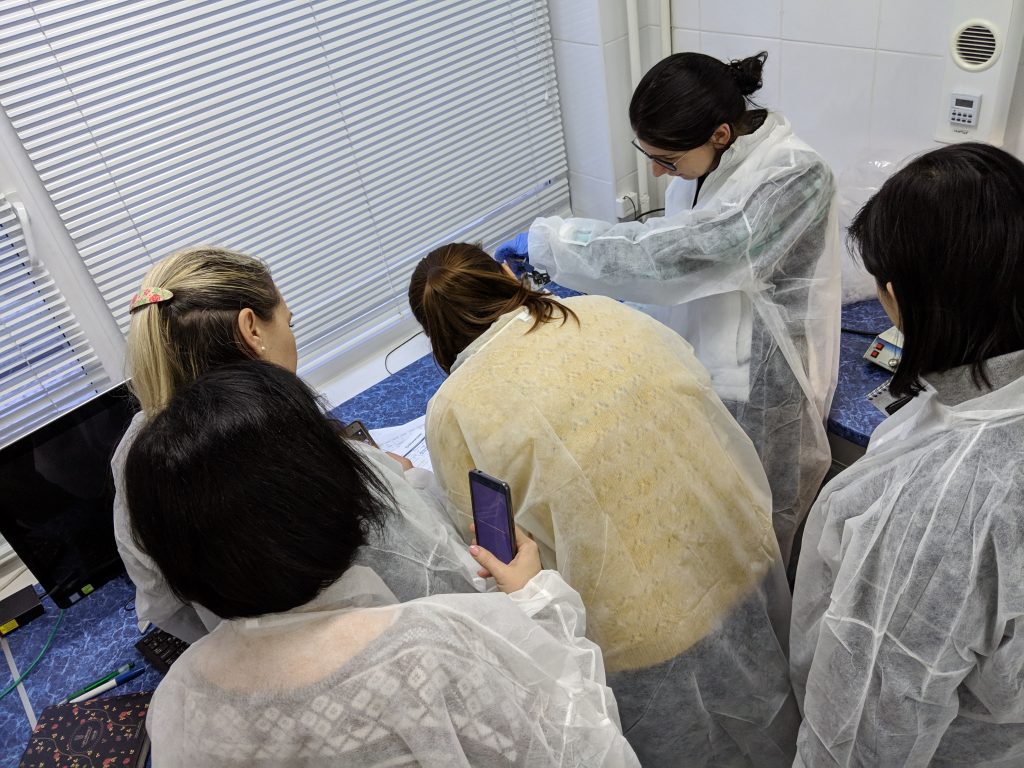The US Department of Defense program for science capacity building, the Defense Threat Reduction Agency (DTRA) Cooperative Biological Engagement Program (CBEP), has sponsored research projects and disease surveillance for emerging pathogens in a number of developing countries, including Ukraine. These efforts focus on forging cross-collaboration between host country (foreign) scientists and US academic researchers. Ukraine is a hotspot for emerging infectious diseases. The ongoing circulation and spread of African Swine Fever virus (ASFV) throughout Ukraine, coupled with the threat of transboundary disease in countries in Eastern Europe and the Caucasus, highlights the need to identify and characterize the ASFV genotypes circulating in Ukraine. Current knowledge gaps include a limited understanding of susceptibility and transmission patterns, the relative virulence of circulating isolates, and the potential role of carrier animals. The epidemiology and evolution of ASFV, including the source and location of virus introduction for individual outbreaks, the rate of spread within the country, and the rate of evolutionary change, are poorly understood. This project is advancing critical scientific capacity for genomics-based biosurveillance of emerging ASFVs in Ukraine.
- Our first paper from this project (Kovalenko, et al 2019, DOI: 10.1128/MRA.00883-19).
- Full Genome GenBank accession no. MN194591
- Video: Nanopore sequencing of emerging viruses in a “hotspot” – African swine fever and avian influenze in Ukraine. Ganna Kovalenko at the 2018 Nanopore Community Meeting

